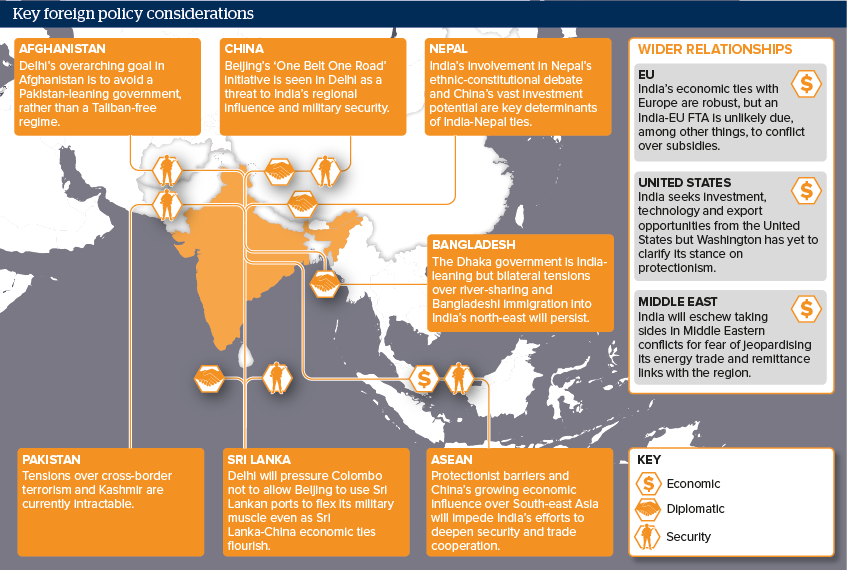Indian regional and global foreign policy aims diverge
Delhi’s core foreign policy theatre is South Asia despite Modi’s rhetoric around the mid-2014 elections
Source: Oxford Analytica
Outlook
Despite the initial rhetoric of Prime Minister Narendra Modi’s government promising an overhaul of India’s international standing, Delhi’s foreign policy is characterised largely by continuity rather than change. This trend is unlikely to alter during the rest of Modi’s five-year term to mid-2019.
Delhi will be politically interventionist and assertive in its immediate neighbourhood, successfully leveraging its long-standing links with Nepal, Bangladesh and Sri Lanka to contain China’s influence in South Asia. Ties with Pakistan, already hostage to historical differences, could fray further as the China-Pakistan Economic Corridor draws India’s two arch-rivals closer.
Outreach beyond South Asia will be transactional and politically neutral as India prioritises economic cooperation with South-east Asia, the Middle East, Europe and the United States. India’s footprint on global security will be limited absent a permanent UN Security Council seat, which Delhi wants but will not soon achieve.
Impacts
- China will block India’s bid to be part of the Nuclear Suppliers Group and a permanent UN Security Council member.
- US trade protectionism will hurt both Indian and US businesses, impeding cooperation in other areas such as defence.
- The outcome of Brexit negotiations will shape India-Europe and India-UK ties.
- India will avoid involvement in the Middle East’s sectarian divisions, partly to avoid similar divisions at home.
See also
- India-US energy relations face reset - May 8, 2017
- More graphic analysis
